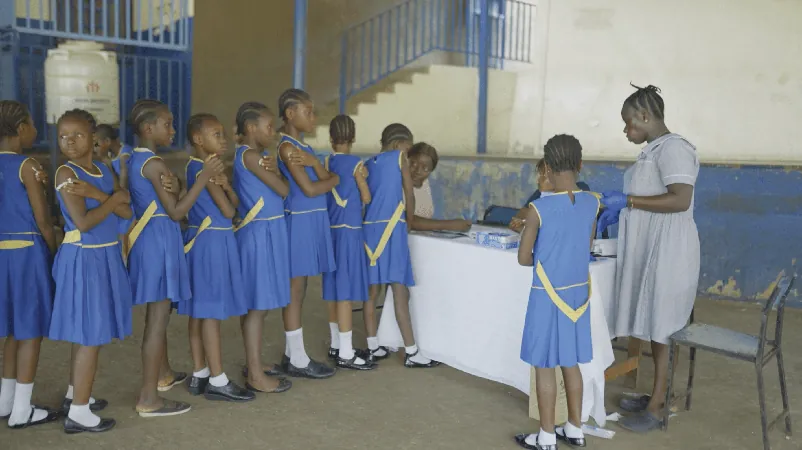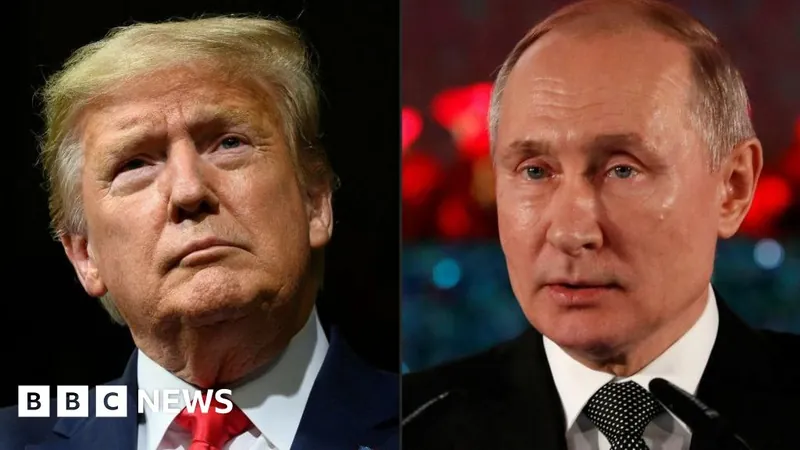
Dose Of Hope: The Game-Changing Update in HPV Vaccine Policy That Can Save Women's Lives
2024-10-11
Author: Jacques
Introduction
On the International Day of the Girl Child, a new beacon of hope has emerged in the battle against cervical cancer: the groundbreaking HPV vaccine known as Cecolin. This innovative vaccine, now recognized by the World Health Organization (WHO), can be administered in just one dose, a significant advancement in the fight against a disease that claims far too many lives across Africa.
Cervical Cancer in Africa
Cervical cancer remains a silent killer on the continent, where it disproportionately affects women. Data reveals that Africa has 19 of the top 20 countries with the highest cervical cancer burden. Tragically, many of these nations lack adequate access to routine screening and effective treatment options, leaving countless women unaware of their condition until it reaches a critical stage.
WHO's Endorsement of the Single-Dose HPV Vaccine
With the WHO's recent endorsement of single-dose HPV vaccination, there is newfound optimism that more girls can receive this life-saving protection. Until now, the global vaccination strategy has primarily relied on a two-dose regimen, which, due to logistics and resource limitations, has hindered coverage, especially in low-income areas. Now, countries can take advantage of Cecolin alongside two existing vaccines to accelerate their vaccination campaigns and protect more girls, targeting the crucial age group of 9-14.
Vaccination Progress and Challenges
The WHO reports a remarkable improvement in vaccination statistics. In 2023, 40% of girls in Africa received at least one dose of an HPV vaccine, a sharp rise from only 21% in 2020. Yet, we are far from achieving optimal vaccination coverage necessary to eliminate cervical cancer by the year 2030.
Impact of One-Dose Schedule
The adoption of a one-dose schedule alleviates the pressure of vaccine supply shortages, which have previously stymied efforts to immunize girls. This change could significantly reduce the risk of these young girls developing cervical cancer later in life. By simplifying the vaccination process, countries can quickly respond to outbreaks and maintain vaccine flow, ensuring that no girl misses out on this critical protection.
Global Acceptance and Future Outlook
Already, 17 African nations have embraced this one-dose approach, illustrating their dedication to addressing this public health crisis. Moreover, WHO’s recommendation is more than just a revision; it represents a pivotal turning point in achieving health equity and reinforcing the commitment to women’s health in Africa.
Conclusion
Several other nations beyond Africa, including countries in Asia, are now reassessing their HPV vaccination strategies in light of WHO's decision. The potential to scale up vaccination programs with an effective and simplified plan could herald a new chapter in combating this preventable disease.
By seizing this moment and championing the one-dose HPV vaccine schedule, countries can ensure a healthier future for girls everywhere. Together, we can bring cervical cancer elimination within reach, enabling a brighter, healthier tomorrow for the next generation of women.
In this race against time, every girl counts, and now, thanks to advancements in vaccine policy, we are one step closer to a world where no woman suffers unnecessarily from cervical cancer.









 Brasil (PT)
Brasil (PT)
 Canada (EN)
Canada (EN)
 Chile (ES)
Chile (ES)
 España (ES)
España (ES)
 France (FR)
France (FR)
 Hong Kong (EN)
Hong Kong (EN)
 Italia (IT)
Italia (IT)
 日本 (JA)
日本 (JA)
 Magyarország (HU)
Magyarország (HU)
 Norge (NO)
Norge (NO)
 Polska (PL)
Polska (PL)
 Schweiz (DE)
Schweiz (DE)
 Singapore (EN)
Singapore (EN)
 Sverige (SV)
Sverige (SV)
 Suomi (FI)
Suomi (FI)
 Türkiye (TR)
Türkiye (TR)